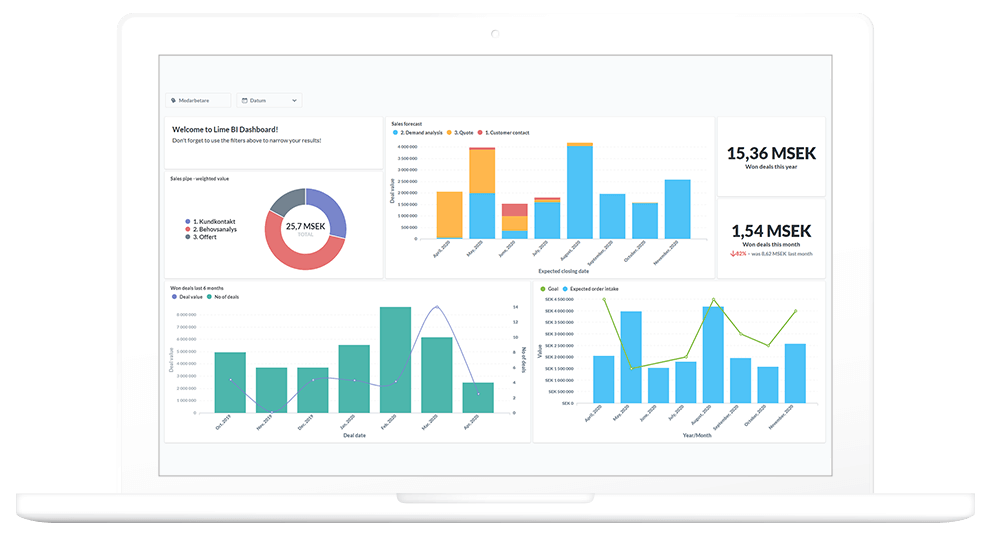5 simple steps for efficient meeting booking

What makes a great meetings booker? Is it to have as many calls as possible? No, there are many strategies for how you can easily increase your hit rate when you’re booking a meeting. If you want to be successful when booking a meeting there are some important things within these strategies, such as structure, discipline and continued monitoring.
To cold call and book a meeting can be quite simple. Call up a potential client from your call-list, find a time fitting for a meeting, book an appointment and mark it in the calendar. But if you’ve been sitting and calling for hours on end and nobody picks up, you know that cold calling and book a meeting isn’t always as easy as it sounds.
Let’s be honest, to made cold calling appointment booking can be a quite repetitive task and the hardest part is to keep your spirits and motivation up. That’s why your whole sales team can benefit from an active initiative of creating strategies on how to make meetings booking as efficient as possible.
These strategies can easily be made with the help of your CRM-system.
Find new potential clients directly through your CRM
Do you know who’s buying your products and services? If you already know the answer to these questions it will be easy for you to create and make lists of your potential clients and prospects for cold calling. Figure out what criteria is important for your cold calling lists and then apply them in your CRM system. With one simple search, you can match your criteria with up-to-date company information to find not only the right company, but also the right person.
To work efficiently when booking a meeting means that you need to work from an already prepared cold call list. The list can contain anything from where the clients are based geographically, what type of business they’re involved in to titles or some other requirement that makes up your ideal customer. That’s why it’s important for the sales team to work systematically with all prospects to gain as many potential customers as possible.
Why is it more effective to segment the list out of different criteria? This is because each meeting booker or salesperson can prepare for the challenges and situations that characterize the specific customer group. Does it sound confusing? Let us explain how it’s all connected!
A qualified appointment booking that meets the customers needs
Put yourself in the customers shoes: You get a call from someone you don’t know, who wants to book a meeting with you. What does it take for you to accept the meeting? Wouldn’t you say it depends on whether you think the meeting will solve a challenge or problem that you’re currently facing? This is why it is very important that you, as a sales representative, have analyzed the needs of your customer before hand when making cold calls and trying to book an appointment with a potential customer.
While working with segmented lists, it becomes much easier to correctly analyze the needs of your potential customers. You do this by collecting and summarizing all the common denominators of your prospects on your call list. An example of different categories that a list like this could obtain would be the following:
- Operations managers
- Private or Public companies
- Companies with an annual turnover of between 50 and 100 million
- Location
- Who operates within the energy sector
See the initial phone call as an opportunity to ask the questions you want answers to for your needs analysis. The better you understand the customer, the easier you can present an offer that creates a value for the prospect. Which leads us to the next step in the process; creating a manuscript with a great sales pitch.
Why you need a manuscript during cold calls
When writing a manuscript for your cold calls, imagine the customers objections and write down counter arguments to those objections. To use a manuscript while making cold calls doesn’t mean you should just read out loud from the manuscript. No, it’s about creating a state of mind that prepares you for the mental process that you as a salesperson goes through while doing the cold call as a meetings booker. To be mentally prepared for whatever questions or objections that might come along during your calls, is an effective way to meet the customer with their desirable answer.
Your manuscript will set the guidelines and the agenda for the conversation and make sure that it leads to where you want it to. One thing we know for sure: You need to help the customer identify what their needs are and then present a desirable solution to the customer. The whole purpose of writing a manuscript is to be able to match the customers needs and to practice your sales pitch so you know it better than the back of your hand. It’s only by then that you will be able to radiate the confidence you need to close the deal.
Practice makes perfect. So don’t be afraid to ask for help and feedback from your colleagues. When you’re making cold calls, don’t forget to regroup and evaluate your manuscript from time to time, and ask yourself: What works and what needs improvement?
Pick up the phone and book your next meeting

You have prepared a list of current company information, done your needs analysis, and written a sales script. Now it’s time to pick up the phone to book a meeting! It sounds easy, but you’ll maximize your results with three simple tricks:
- Decide how many calls you will make or how many appointments you will book. By setting clear goals, you can ensure that your sales pipeline is always replenished with a steady flow of qualified leads.
- Put on your best smile. When you smile, endorphins are released, which makes you feel calm. This makes it easier to maintain a tone of voice that exudes both positivity and credibility during the conversation. You might not think it, but smiles can be heard through the phone!
- Look for customer value in every call. Your job is to book as many appointments as possible. But at the same time, we both know that not every prospect will accept. To stay motivated, it can help to see the value you can create for the customer, even in calls with negative outcomes.
Evaluation is an important part of booking qualified meetings
“Just do it” is a good motto when it comes to booking meetings, but in the long run it pays to evaluate your sales techniques and what creates results. It’s not just the number of meetings booked that matters, but the quality of the booked meeting. Booking twenty meetings that don’t lead to a business opportunity is far inferior to five meetings that all move the sales process forward.

What is your hit rate for meetings booked?
If you have prepared yourself according to all the steps, you can stretch your back with pride. You have now created the best possible conditions to increase your hit rate on the number of booked appointments. Want to know your hit rate? Here’s how to calculate it:
Number of calls made / number of appointments booked = hit rate for appointments booked
If you make 100 cold calls and book 10 appointments, you have a hit rate of 10 percent. Is that good or bad? Compare yourself to other meeting bookers in your team and aim to increase your hit rate. But the meetings also need to be conducted to drive business, which leads us to the next question.
How many of your meetings does actually happen?
Making an appointment is not too much of a sacrifice for the customer. Therefore, there is a risk that the appointment is both rescheduled and, in the worst case, cancelled. An important KPI for meeting bookers is therefore the number of completed meetings. Missed meetings are not necessarily the result of a poor job by the meeting booker, it’s also important to look at the whole process:
- Does the customer receive clear confirmation of booked appointments?
- Do you send out a reminder before the meeting is taking place?
- Is the agenda and purpose of the meeting clear to the customer?
If the answer to these three questions is yes, then you are at least in a good position to book meetings that create business value.
Evaluate which day and time that gives the best results
It is said that the best days for sales calls are Tuesday, Wednesday, and Thursday, but this may not be the case for your industry. Are there times of day that work better for you? Dare to evaluate and refine your meeting booking strategy to maximize your results.
Use CRM to track the results of your booked meetings
Lime CRM makes it easy to evaluate and refine your meeting booking strategy. As a sales coach, you can set KPIs for the team and on an individual level, making it easy to support each meeting booker in the best possible way.
Remember that motivation and a good mood are an unbeatable recipe for success as a meeting booker!
Do you want more booked meetings?
There’s no time to waste! Let’s find the solution that will help you get more customers and turn existing ones into loyal ambassadors today.